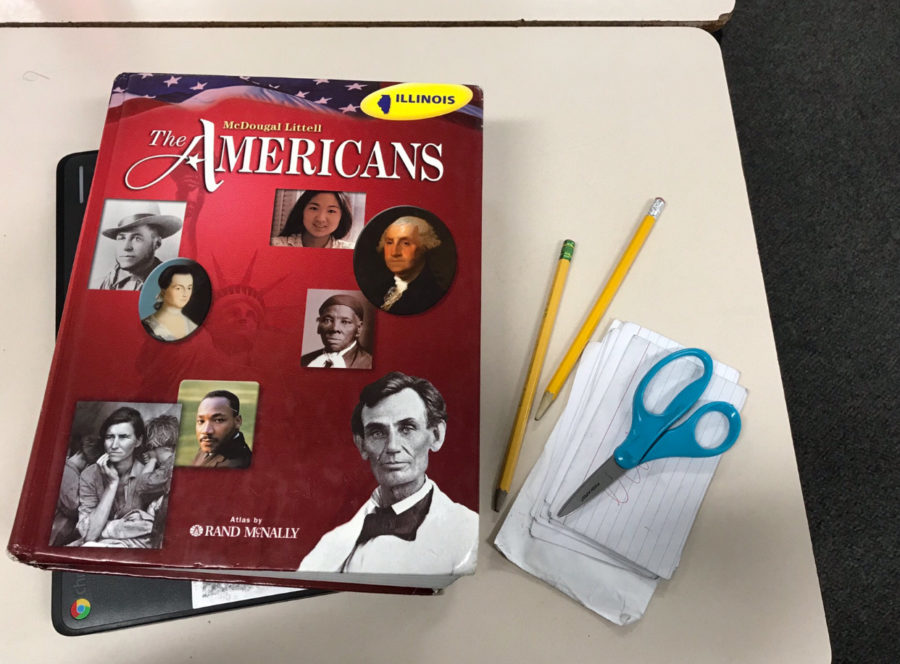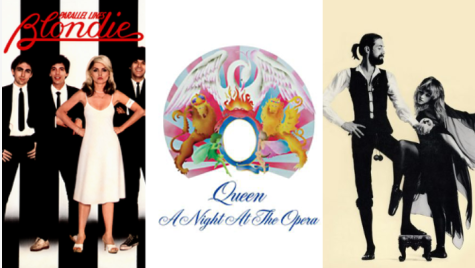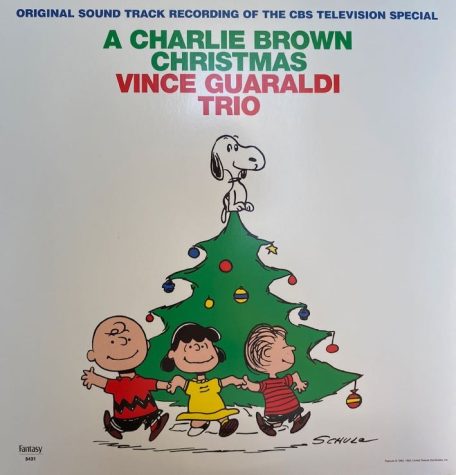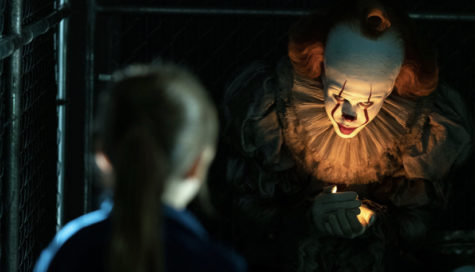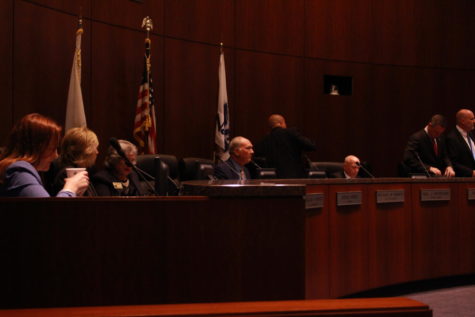Column: Publishers haven’t made history with their textbooks
Photo by Sophie Bruce
Boredom. Confusion. Frustration. When it comes to studying the events of our past in poorly written history textbooks, these have quickly become common symptoms for high school students.
Maybe the stories are the source of our bafflement— if this stuff happened a billion-trillion years ago, how could it ever apply to our advanced, forward-thinking lives?
But maybe the “what” isn’t the root of our problems at all. In actuality, it’s the narrative, and the very particular way our publishers arrived at that narrative. Content is only a subset of a much larger problem.
Publishers and state selectors are scared of our history. They omit conflict and suspense because they are afraid of the image of our historical figures. They are afraid of including consequential events. They are afraid of projecting a sour image of our country’s character.
Decades of textbooks have beat around the historical bush, projecting a watered-down image of history in blatant disregard of America’s faults. Complex characters were either vilified or praised to push an ideal image of the American character.
As a result, students are being spoon-fed misleading, distorted documentations of our uneven history. It is clear that as publishers channelled their political agendas into textbooks and acted out of their own prejudices, the worldviews of schoolchildren were being changed.
In “A Brief History of Textbooks: Where Have We Been All These Years?” John Wakefield explains that many history textbooks, aimed to instigate a specific set of moral values and nationalism in schoolchildren, emerged in the 1940s. The educational approach to these “history lessons” was inductive.
“A national character began to emerge. By midcentury, history texts became filled with character portraits that illustrated this set of moral values,” Wakefield wrote. “This peculiar combination of values led to some strange distortions of history.”
Wakefield focused on one work of textbook author Goodrich in particular, the “Pictorial History of the United States,” in which the author introduced the Puritans as “an excellent people, but somewhat peculiar in their opinions and habits.”
“Goodrich was the son of a Puritan minister, and understood how the word peculiar could be complimentary,” Wakefield wrote.
Yet, as textbooks reach modernity, the intent of many publishers has shifted. But does this mean the line separating history-shaping moments that continue to have weight in our society from the more trivial moments of our history is still being blurred?
Publishing companies are so concerned about maintaining socio-cultural and political correctness and marketing their books to a more approving audience that in the process of authoring a book, bias not only persists, but is maximized to push a preferred narrative.
Deception, fortunately for the publishers, stays under the radar. These textbooks often seem so outwardly boring and bland that even when valuable or controversial topics are excluded, a reader will likely assume all events are factual without recognizing omissions.
Unlike past publishing companies that seemed to promote the values of the white Anglo-Saxon male, current textbooks have shifted the narrative to an attempted equality of all opinions without considering the factual content, ethical standards and functionality behind those opinions. Newer textbooks are glorifying the virtues of the cosmopolitan world while the repressive tendencies of some cultures are kept silent.
The Wisconsin Policy Research Institute reported in 2002 that all 15 of the evaluated World History textbooks avoided coverage of Eurocentrism, Ameri-centrism and ethnocentrism, including textbook “World Cultures: a Global Mosaic” used in the Naperville North World Cultures course.
The text also neglected coverage of democracy and free markets. Instead of presenting a global storyline from a narrow American or European perspective, some textbooks moved to the other end of the spectrum, paying excessive homage to the diversity of today’s multicultural world, while omitting crucial details.
In this case, the true handicap of our more recent texts lies in what is ignored, and not in what is said. But are the writers and publishers of textbooks solely to blame for our frustration? Or is our district’s selection process involved in the mix? Perhaps it is the state who is forcing our District to merely stay within preset boundaries.
To participate in the Textbook Block Grant funding program that provides textbooks free of charge, NNHS is required to register with the Illinois State Board of Education (ISBE).
But there’s a catch: schools can only choose from a list limited to textbooks that have been preapproved and designated by the ISBE. Not only are these boards able to determine what is taught, but they also decide the structure in which these subjects are taught.
Many may argue that following the preset list by the ISBE is more impartial than textbooks in other areas of the country. However, by the looks of it, Illinois textbooks are not so great, either. They’re dull. Illinois textbooks suffer from a nuanced and boring prose. This is rooted in authors’ scrutinization over political correctness, controversial topics and the promotion of certain ideologies within their textbooks.
Based on the recommendations of the Illinois State Board of Education, the textbook that achieves the most “impartial” version of history— the same textbook that often has a monotonous and uninspiring narrative— can often slip by as the most fitting medium of teaching.
The Thomas B. Fordham Institute, whose mission is to “promote educational excellence” via their research, analysis and commentary, created a comprehensive review of the “State of State Standards.”
In their review of the world history standards in Illinois, the Fordham Foundation stated “The standards cover the entire political history of the world in half a page, much of it vague and unhelpful…. Worse, much of the actual political content of history is overlooked or treated superficially,” the Fordham Foundation reported. “Standards will keep Illinois students in the dark about the broader world around them.”
Even as the Illinois Learning Standards for Social Science have since been updated in 2017, many of the same historical texts approved under the former inadequate standards were still used in NNHS classrooms as recently as 2016.
The textbook “The Americans: The National Experience,” which was used in American Studies and U.S. History courses at NNHS in as recent as November of 2016, was given a score of 56 percent based on a comprehensive list of 12 standards by the Thomas B. Fordham Institute’s “A Consumer’s Guide to High School History Textbooks.” This criteria had many of the same standards— accuracy, content, literary bias— included in Illinois’ current social studies standards. In essence, one of Naperville North’s most recent textbooks, which was preapproved by the state and used in our classrooms in as late as 2016, has been given a failing grade.
The harsh truth of this complicated process is that both the state and publishing companies are enabling a misleading history education for students. The entirety of Naperville’s complex selection process comes down to a chain of long-enduring ideological bias, which blindsides generations of high school students.
Because these are students’ predominant source of information in history class, textbooks should not present history as an incoherent mess of information in which every person, group and event is equally important and nothing matters. Rather, it is imperative that each story contains a narrative in which every fact, both minor and major, all flow into an accurate portrayal of our past.
Historian and writer Paul Johnson sums it up best: “The study of history is a powerful antidote to contemporary arrogance. It is humbling to discover how many of our glib assumptions, which seem to us novel and plausible, have been tested before, not once but many times and in innumerable guises; and discovered to be, at great human cost, wholly false.”
So before you open your history textbooks, take the content with a grain of salt— the facts might not be as straightforward as you suspect.

Sophie Bruce is a junior at Naperville North High School. This is her first year as a photographer for The North Star after taking several photography...

